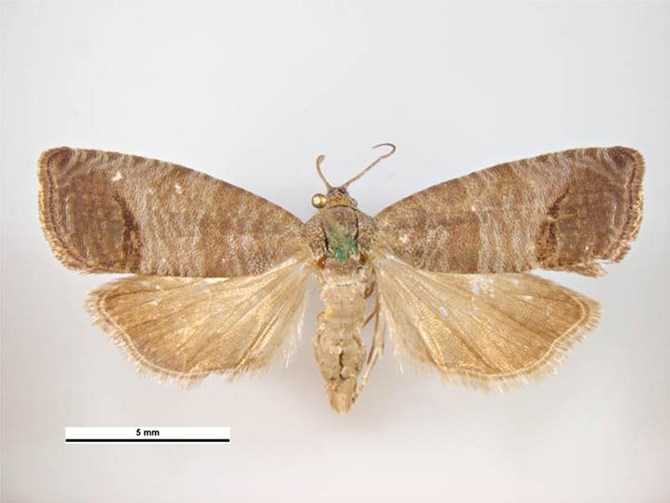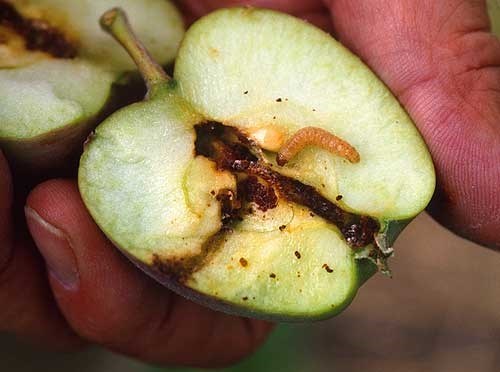
The Okanagan's Sterile Insect Release program is finding new markets to fight the codling moth by exporting the technology to neighbouring Washington State.
Image Credit: Wikimedia commons
September 07, 2020 - 6:00 AM
As hard times hit the Okanagan apple industry, the Okanagan based program that battles one of the crop's most notorious pests is finding new relevance with markets for its technology south of the border.
The Sterile Insect Release Program, also known as SIR, began in 1992 to provide a safe and innovative way to control the codling moth population and reduce the use of pesticides.
The program produces sterile codling moths which are released at regular intervals to breed with wild moths. The mating pair can’t produce viable offspring and the result has been a steady decline in wild codling moth populations.
SIR currently receives 60 per cent of its funding from taxpayers and 40 per cent from commercial fruit growers in the Okanagan, Similkameen and Shuswap valleys.
But the industry has changed in the last 28 years, with many apple growers taking out their orchards and replacing them with grape vines and other crops.
Program general manager Melissa Tesche says apple acreage has declined to roughly 7,600 from around 21,000 acres in the 1990s.
The industry is also facing some tough times these days, as it struggles with low returns, cheap Washington apples and restructuring.
Tesche says there has been some discussion about the continuing relevance of the sterile release program as apple acreage declines, including looking at what level of acreage would be the point at which the program would no longer be feasible.
“It’s a significant thing. As our acreage declines, our moth needs decline, but what has changed is we’ve found a new export market for our moths in Washington State,” Tesche says.
“They are having a lot of trouble controlling the codling moth down there, and they’ve been paying quite a lot of money for our moths. In spite of COVID-19, closed borders and wildfires interfering with business, we are on track to make $650,000 from export sales.”
Tesche says that money could help offset tax costs for the program here in Canada.
But she is also hopeful the industry can stabilize and return to a healthy economic condition on this side of the border.
“I think the pandemic has shown us of the need for food security. It would be in our best interests to hang onto those apple acreages,” she says.

Codling moth damage in an apple.
Image Credit: Wikicommons
To contact a reporter for this story, email Steve Arstad or call 250-488-3065 or email the editor. You can also submit photos, videos or news tips to tips@infonews.ca and be entered to win a monthly prize draw.
We welcome your comments and opinions on our stories but play nice. We won't censor or delete comments unless they contain off-topic statements or links, unnecessary vulgarity, false facts, spam or obviously fake profiles. If you have any concerns about what you see in comments, email the editor in the link above.
News from © iNFOnews, 2020